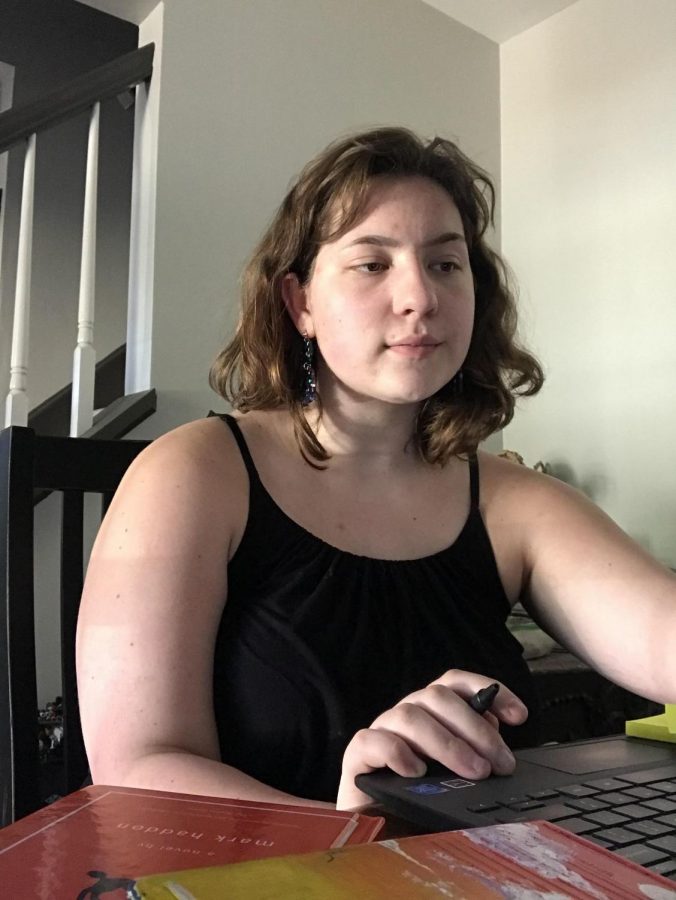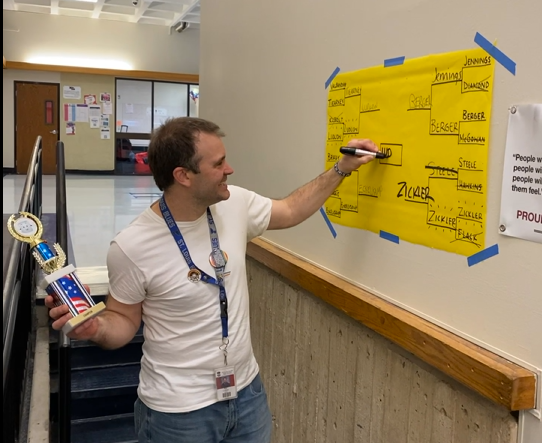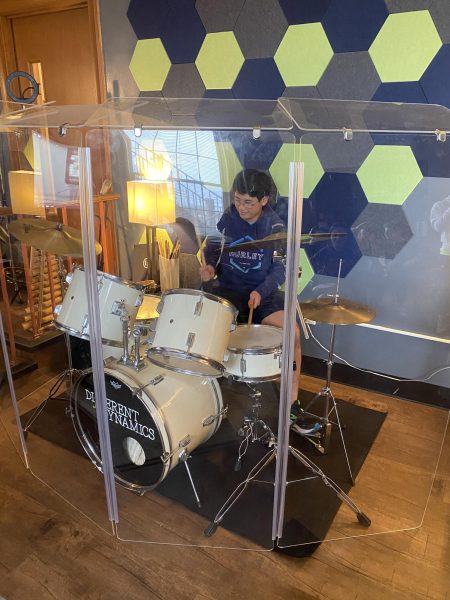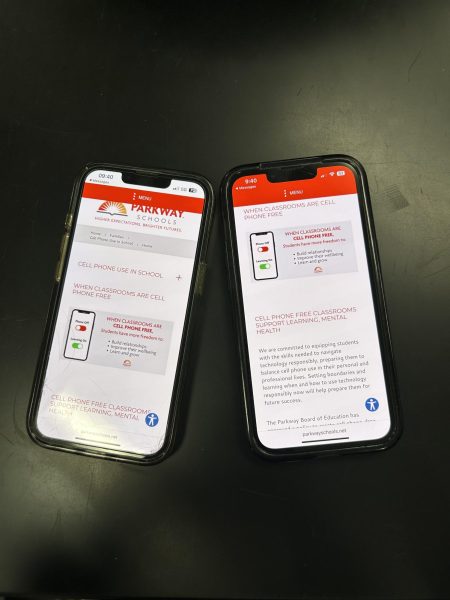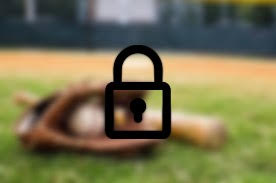The COVID-19 blues
Pandemic, virtual learning impacting mental health
The school year is usually stressful, but it’s also a time for seeing friends, going to sporting games, dances, and meeting your new teachers.
This year it is all but that. The pandemic has taken a toll on learning and especially mental health. Students are now sitting on Zoom calls all day for classes, with no real interaction. This has many feeling the impact.
Junior Riley Darrough said her mental health has been worse during quarantine and the COVID-19 pandemic.
“My mental health has definitely declined since the pandemic began. This is the result of both less contact with a support system (friends) and less social interactions overall,” Darrough said.
Many other students would agree, including senior Taylor Feldman.
“I got very depressed during the quarantine. I hate being stuck inside, I’m always driving or out somewhere, so when everything was closed and I had to stay inside during the pandemic it was a very hard time for me, to go months without working or seeing my friends,” said Feldman.
Even teachers, such as English teacher Shannon Lesko, would agree that the pandemic has taken a toll on students.
“Kids seem fine, but not great. Bored and sad. It seems like life is full of a little less joy,” Lesko said.
During this time it’s hard to have an outlet when you feel stressed or overwhelmed, according to sophomore Alex Goheen.
“When I get stressed, I ignore it and continue working on what I need to do,” Goheen said.
This is also the case with Darough as she said she doesn’t have a place to go for help, and just avoids her problems when she is stressed.
“When I get stressed, I usually just sleep to avoid my problems,” Darrough said.
The pandemic has limited students’ interaction with their friends. Goheen said he has figured out a way to interact without being face to face.
“I don’t get to hang out with friends that much but we’ve been having group Facetime calls with those people almost every weekday during lunch,” Goheen said.
Other students such as senior Lilly Fisher are saying that they feel guilty when they do hang out with their friends in person, because of the risk of transmitting COVID-19.
“Every once in a while I see my friends and I wish I could see them more without having to worry about getting each other sick or feel guilty about spreading it,” Fisher said.
Darrough, Feldman, and Ewing all express how they wish they could spend more time with their friends.
Even with the class days being shortened, students’ are feeling even more overwhelmed. Students have less in-person class time to ask questions and get help from their teachers. Fisher explains how it is a lot harder to focus and stay on top of your work without being in a classroom setting.
“Math is hard to focus on when there isn’t a classroom setting because no one really wants to do Calculus for fun,“ Fisher said.
Even with not being in the classroom teachers are still finding ways to give students lots of work, with little in-class time to do it.
“Some teachers just keep giving more and more work though, which just adds to the new stress in my day to day life,“ Feldman said.
Ewing said she knows teachers are trying, but it’s definitely still a struggle.
“Teachers are doing their best, but they haven’t really done anything to help mental health or emotional health-wise. It kinda feels like ‘take care of yourself, good luck,’” Ewing said.
Lesko thinks that the longer they are online learning the more unengaged they will become.
“I think students are okay for this first quarter. It seems like everyone will be fine if there is an end in sight, but the longer it goes on, and the more likely it is that this period of online learning continues longer, it seems like students will feel less interested and less motivated,“ Lesko said.


